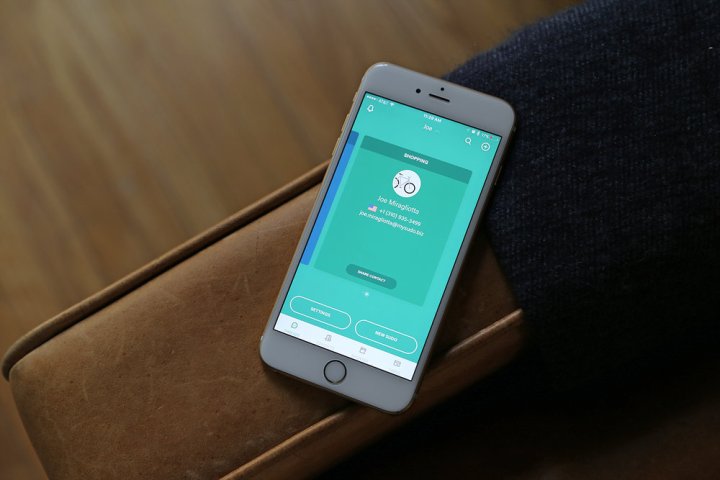
Technology is emerging to help solve the problem it created, and Sudo for iOS, macOS, and eventually Android is one of the more promising solutions to emerge in recent months. It’s an app that operates on the concept of “avatars”: Load up Sudo for the first time and you’re prompted to fill in for one of nine “virtual identities,” each of which is associated with a phone number, email address, credit card number, and even profile picture. They’re digital nom de guerres, in essence — fictional profiles for services, websites, and apps to which you’d rather not supply your personal information.
Sudo is the brainchild of Steve Shillingford, a serial entrepreneur and cybersecurity expert who was inspired by avatar characters in games like Call of Duty and World of Warcraft. “I thought, if you could take the avatar that you work so hard to curate and could make use of it outside of the network … you’d have a way to protect yourself … around various sites,” he told Digital Trends. “It’s basically extending the avatar idea into everyday activity.”
The avatars — or “Sudos,” as Shillingford calls them — essentially act as catch-alls for digital detritus. Each Sudo’s phone number is a working line that accepts both messages and phone calls, including those sent from landlines, mobile phones, and select international sources. And email addresses have an inbox with support for receiving and archiving up to a gigabyte of mail.
Sudos live as long as you want. You can delete one after a week, or devote a profile to activities like online shopping, social networking, or calling. “You can move in and out of memberships and sites and apps that you want to explore,” Shillingford said.

Shillingford sees it primarily as a means of digitally distancing yourself attention from seedy merchants, unfamiliar landscapers, real-estate agents, or even annoying strangers at trade events. “You can use it to segment and compartmentalize different elements of life,” he said. But Sudo is a fit for more ephemeral tasks, as well, Shillingford contends, like signing up for a gym membership or downloading a digital white paper. “It can organize and protect your personal information. You don’t have to leave your phone number and email address with folks you don’t know.”
Payments are the app’s final (and arguably most significant) element, and they work like Apple Pay. Add a debit card or credit card and Sudo Pay generates a sort of digital veneer in the form of a digital Mastercard replete with a number and expiration date. Merchants never see your payment information — instead, they receive a randomized token associated with the payment method of your choice. Sudo’s payments app only supports online payments right now, but Shillingford said the company’s working on a physical card, too.
Sudo raises privacy concerns in and of itself, of course, in that every profile’s emails, messages, and calls are routed through its parent company Anonyme Labs’ dedicated servers. But Shillingford maintains that Sudo’s engineers retain “zero knowledge” about the users, and couldn’t pull up personal details even if they wanted to. The system is secured end to end — when you download the app for the first time, the encryption key stays on your device. “We don’t store anything that isn’t encrypted,” Shillingford said. “Everything [Anonyme’s servers] get is encrypted gibberish.”
That backend processing doesn’t pay for itself. Sudo remains a privately funded project, but the firm’s tossing around monetization schemes. It might charge a small in-app fee for additional Sudos or levy a small fee on larger email inboxes, Shillingford said. Phone number customization is another potential revenue generator — you might be able to buy a number by ZIP code or secure a premium 1-800 number — as are custom domain email addresses. But Shillingford stressed that it won’t stick any of Sudo’s free features behind a paywall. “Privacy is important,” he said. “[And] people should be able to control how much they have and how much they give away. We want to give people flexibility and freedom.”
That’s unlike much of Sudo’s competition. Burner, which supplies disposable phone numbers, requires you buy extra phone numbers using credits, which you have to purchase in packs of three and up. A newer entrant, Shuffle, charges $1.99 per month per number, with additional fees charged per minute for calls and per message for texts.
Editors' Recommendations
- The top 7 bestselling phones of 2023 were all … you guessed it
- What iPhone do I have? How to find out your iPhone model number
- You’re all wrong — 60Hz on the iPhone is fine
- I wish I never bought my iPhone 14 Pro
- A long-awaited Apple Pay feature is finally on your iPhone


